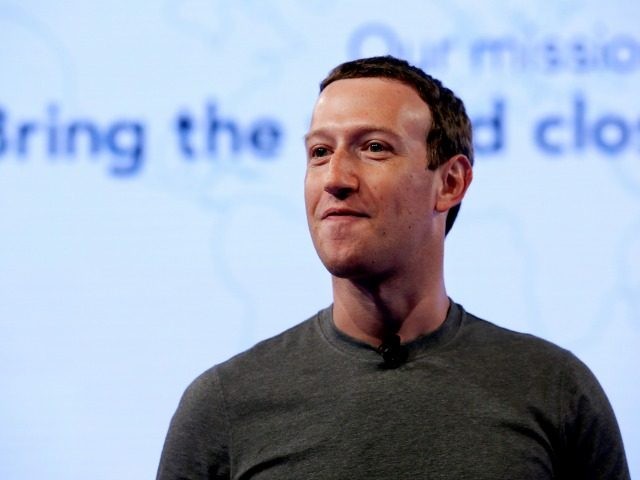Despite Mark Zuckerberg’s claims that Facebook influencing an election was “ridiculous,” the company had a page of election “success stories” on their business website until it recently removed.
Business Insider UK reports that despite Mark Zuckerberg’s claims that Facebook influencing an election is “crazy,” the company bragged about their “success stories” of political influence in a page on their business website — which has since been deleted. A tab on Facebook’s business site titled “Success Stories” listed how Facebook had been utilized across the world to help certain politicians be elected including Florida Governor Rick Scott, and the rise of the Scottish National Party in Scotland. Any content linking to the “success stories” was deleted, but some of the pages still remain online.
In the case of Governor Rick Scott, his campaign utilized targeted Facebook ads to reach a wider Cuban and Hispanic audience in Florida, often set to target people following the 2010 World Cup which was taking place at the same time as Scott’s campaign. Andrew Abdel-Malik, a strategist for Scott, stated that the ads were extremely influential in helping Scott get elected: “Facebook Ads provided us with unique targeting capabilities to look beyond broad demographics and specifically target messages in English and Spanish to specific groups of Cuban, Puerto Rican and other descent,” he said. “This allowed us to reach different sub-groups of Hispanic voters in ways that were simply not feasible on TV and radio.” Facebook claimed that their ads led to a 22 percent increase in Hispanic support for Scott’s campaign.
Facebook also included the success of the Scottish National Party in the 2015 UK elections on their list of achievements. The party had aimed to refine their message and further reach voters in a grassroots campaign following the failed Scottish Independence Referendum in 2014. Kirk J. Torrance, the director of Industrial News Media, outlined how important Facebook was in the parties election saying: “I don’t think Scotland would be where it is today in terms of representation if it wasn’t for Facebook and the tools it offers campaigners.”
Facebook has come under heavy fire following accusations that their platform could be used to influence elections and specifically played a part in influencing the 2016 U.S. elections. Lawyers representing Facebook and Twitter revealed in November 2017 that Russian groups on their social networks tried to delegitimize Donald Trump’s presidency after the election. Sen. Lindsey Graham (R-S.C.) asked at the hearing, “During the election, they were trying to create discord between Americans, most of it directed against Clinton. After the election you saw Russian-tied groups and organizations trying to undermine President Trump’s legitimacy. Is that what you saw on Facebook?”
Facebook general counsel Colin Stretch and Twitter general counsel Sean Edgette confirmed that Graham’s description was “accurate.”
Lucas Nolan is a reporter for Breitbart News covering issues of free speech and online censorship. Follow him on Twitter @LucasNolan or email him at lnolan@breitbart.com

COMMENTS
Please let us know if you're having issues with commenting.